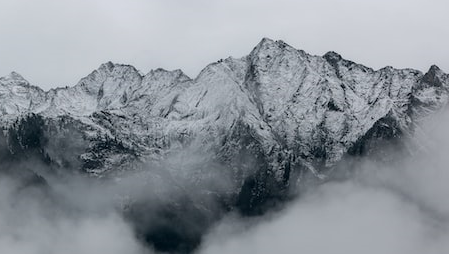One day, four or five centuries B.C., when Buddha was out travelling with his monks (on foot, of course!) they came to a river where a fight was about to take place. The stream was a boundary between the lands of two tribes, the Sakyas and the Koliyas, and the farmers of both wanted to use the water. So heated the argument had become, that bands of armed men had gathered, shouting, on both sides of the river. Seeing this, Buddha walked among them and the men honoured him and became quiet. "Send me," said Buddha, "six of your chief men from either side."
These came and he said to them, "you have lived as neighbours for centuries, for all the history of India; why are you going to wage war now?"
"Because it is the hot season and there is drought, and these robbers (each pointing to the other) want all the water of the river for their fields."
"Where does the water of this river come from?" Buddha asked.
"Sir, it gathers together from the slopes of the Himalaya mountains." "Who owns those mountains?" said Buddha. The men scratched their heads and said, "Ah, who can say that ? The mountains are God's. No man can claim or even climb them." "And if war begins between your two peoples," Buddha continued, "what will become of the crops? Will not your farmers lie dead in the mud, the rice not sown, your wives and children going hungry?" Buddha had good reason to think about this: he himself was from the Sakya clan, and Yashodhara, she who had been his wife, was a Koliya!
"Tell me," he said to the angry farmers, "Can you hold back the water of this river, the way men tether a goat?"
"Of course not, sir, it flows and stops nowhere." Then the Buddha made his judgment. It went like this:
"Let the Koliyas have freedom to draw the water today, and let the Sakyas dig their channels to the fields for them. Tomorrow let the Sakyas draw water and the Koliyas dig the channels. Thus working together you will bring life to your fields and fruition to the harvest."














